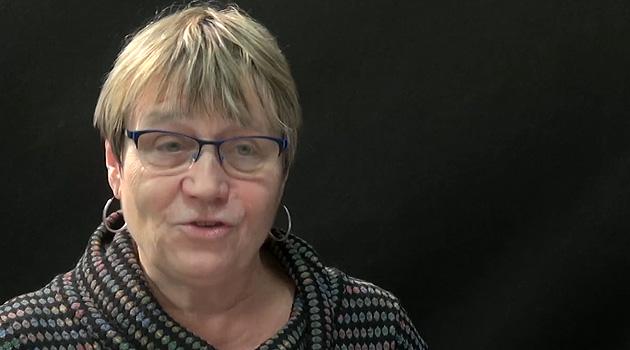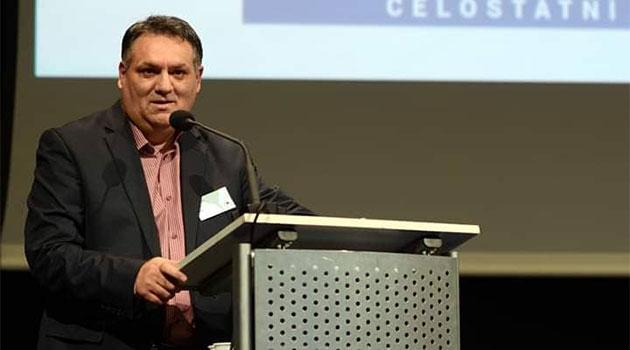Former Czech ombudswoman says she believes ombudsman depriving deputy of her agenda was likely an act of revenge and she should ask the lower house to act

Anna Šabatová, the former Public Defender of Rights, has told the Czech News Agency that the current holder of that office probably took revenge for the fact that the Senate has criticized him when he announced he is taking back the agendas he had previously entrusted to the Deputy Public Defender of Rights, Monika Šimůnková – and Šabatová said that by doing so, he has broken a tradition that has held for 22 years. Stanislav Křeček, the current ombudsman, has cancelled Šimůnková’s signature rights and alleged publicly that her work has involved “complications” of both a managerial and personal nature.
Šimůnková says the ombudsman is lying, and she plans to turn to the Chamber of Deputies over the issue. She is also considering filing a lawsuit against him for the remarks he has made which she believes have damaged her good name, as well as for what she alleges has been his bullying behavior toward her.
Šabatová said a Public Defender of Rights does have the power, formally and legally, to deprive a Deputy Public Defender of Rights of signature rights. “However, to do so contravenes the purpose of the law, which empowers two persons to lead this office, each of whom is elected in the same way and through a vetting process that is equally rigorous for both positions,” the former ombudswoman said.
“This has broken the 22-year-long tradition of how the ombudsman and deputy divide up the competences of the office between them. It is logical that it should not be the case that one of these officials just sits around doing nothing while the other does absolutely everything,” Šabatová said.
According to the former ombudswoman, this could very well have been an act of revenge by Křeček over the fact that he was criticized by the Senate on Friday, when a resolution was adopted criticizing him for his public remarks about minorities and refugees. The senators also called on him to more consistently uphold his oath in the performance of his duties.
According to Šabatová, the problem is also that Křeček exceeds his purview when he posts to social media or authors articles for the media. “People who lead such institutions should engage in a certain self-restraint,” she said.
“They have to be aware that what they say can be comprehended as the institution’s opinion,” said the former ombudswoman, who believes Šimůnková should certainly appeal to the Chamber of Deputies to intervene. According to Šabatová, the ombudsman is accountable to the Chamber of Deputies in particular, to which the office submits its annual and quarterly reports.
“The lower house should at the very least intervene on the level of what is moral,” she said. Dismissing the Public Defender of Rights is something the lower house could do in just a very few cases, and chiefly for reasons that can be objectively proven.
For example, the ombudsman cannot be a member of a political movement or party. According to the law on the Public Defender of Rights, the execution of this function is incompatible with any other gainful activity, with the exception of the office holder administering his or her own personal property or engaging in activity that is academic, educational, journalistic, literary or artistic, as long as such activity is not to the detriment of the execution of the office and its dignity and does not endanger the public’s trust that the office holder will work impartially and independently.
“That is the only thing that makes it possible to remove somebody from this position before the term expires. It has to rise to a certain level of very serious intensity, whereby the seriousness and respect for the office is reduced for a longer term, for example, through the office holder’s media activity or publishing,” said Czech MP Helena Válková (ANO), the former Czech Government Human Rights Commissioner, speaking on the Czech Television program 90´.
“Then the Chamber of Deputies could respond, somehow, but there would have to be actual proof of it and apparently it would end up in the courts,” Válková predicted. It is exactly that option that was mentioned by RomanoNet, the umbrella organization of pro-Roma and Romani-led NGOs, in their call for the dismissal of Křeček from this office.
The law on the Public Defender of Rights establishes that the office holder is empowered to entrust the Deputy Public Defender with undertaking some of the office’s activities. Křeček has stated that he is attempting to “stabilize the functioning” of the institution by no longer exercising the option of entrusting some of the agendas to the Deputy Public Defender of Rights.
The Deputy Public Defender or Rights will no longer be in charge of those agendas as of tomorrow, 1 July. The ombudsman also publicly stated that “complications” of a managerial and personal nature have accompanied her work.
Šimůnková has said she considers the removal of the agendas that were assigned to her to be an absolutely unprecedented interference with the Deputy Public Defender of Rights position and that is the culmination of longstanding problems between herself and the ombudsman. She was elected to the office of Deputy Public Defender of Rights by the Chamber of Deputies in November 2019, when Šabatová was the ombudswoman.
The previous Deputy Public Defender of Rights, whose term had expired, was Křeček, who was then elected ombudsman and came into office in February 2020. The disagreements between him and Šimůnková have been over the issues of allowing fathers to be present during the delivery of their children or allowing parents to stay with their hospitalized children.
